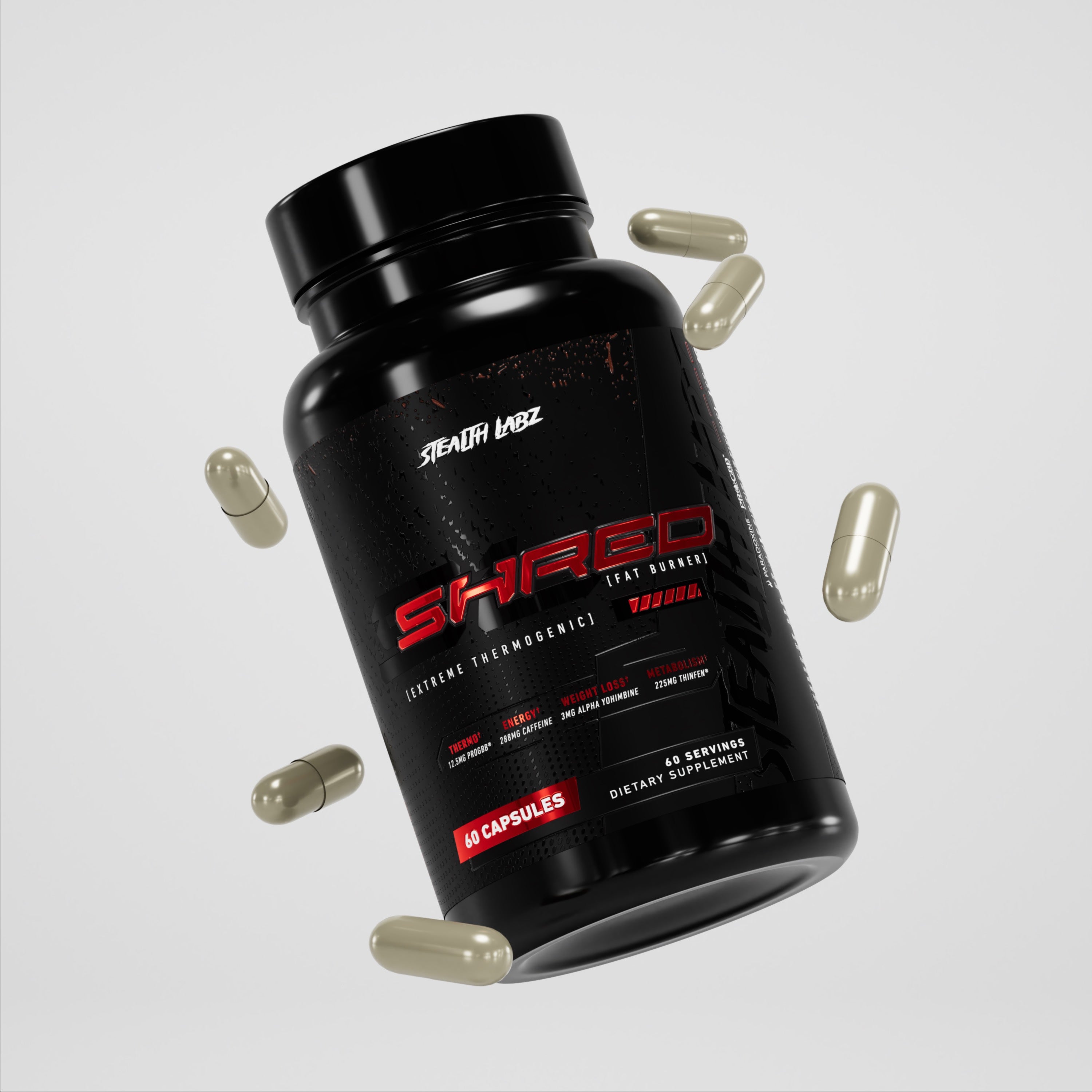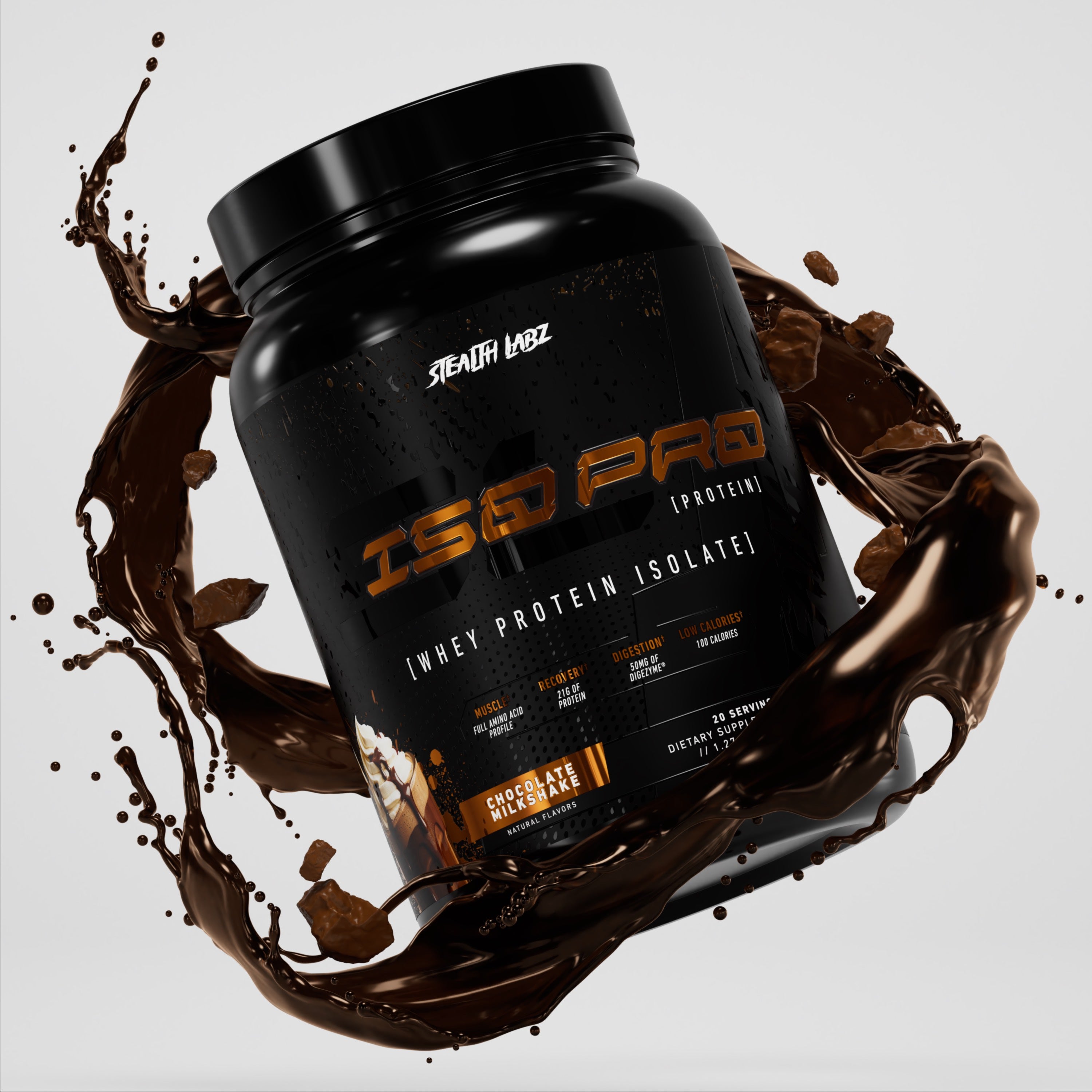
When to Drink Protein Shakes for Muscle Gain
Timing your protein shakes can boost your muscle-building efforts. While total daily protein intake is the key to muscle growth, strategic timing enhances recovery, performance, and convenience. This guide covers the best times to drink protein shakes for muscle gain, backed by recent research, and highlights how supplements like ISO PRO Whey Protein Isolate, ELEVATE BCAA/EAA Plus, and SHRED Extreme Fat Burner can support your fitness goals. Whether you're bulking, cutting, or maintaining, learn how to maximize muscle growth with protein shake timing.
A recent article, New Research Explores: Does Whey Protein Isolate Reduce Belly Fat?, looked into exactly that. And the findings are worth paying attention to.
Key Takeaways From the Research
-
Curbs appetite: Whey isolate keeps you full longer, making it easier to avoid overeating.
-
Preserves lean muscle: During fat loss, muscle retention is crucial. Whey isolate helps protect it, which also helps maintain your metabolism.
-
Burns more calories digesting protein: Your body spends more energy breaking down protein than carbs or fats. That small boost adds up over time.
Understanding Protein and Muscle Growth
Protein is essential for building muscle. Resistance training creates tiny tears in muscle fibers, and amino acids from protein repair and rebuild them, leading to muscle growth (hypertrophy). The International Society of Sports Nutrition (ISSN) recommends 1.4–2.0 grams of protein per kilogram of body weight daily for active individuals, with some studies suggesting up to 2.2 g/kg for optimal muscle gain (Jäger et al., 2017). For a 154-pound (70 kg) person, that’s 98–154 grams of protein daily.
A 2024 study in Frontiers in Nutrition confirms that total daily protein intake drives muscle growth, with timing playing a supporting role (Schoenfeld et al., 2024). Spreading protein across 3–5 meals, with 20–40 grams per meal, maximizes muscle protein synthesis (MPS).
| Body Weight (kg) | Protein Intake (grams/day) |
|---|---|
| 50 | 80–110 |
| 70 | 98–154 |
| 90 | 126–198 |
Best Times to Drink Protein Shakes for Muscle Gain
Post-Workout: Fueling Muscle Recovery
Post-workout protein shakes are a go-to for muscle repair. The "anabolic window" may last up to 5–6 hours after exercise, per a 2021 study from Byrdine F. Lewis College. A shake with 20–30 grams of fast-digesting whey protein, like ISO PRO Whey Protein Isolate, delivers amino acids quickly to boost MPS. Adding carbs can restore glycogen, aiding energy recovery.
Morning: Kickstarting Your Day
After fasting overnight, a morning protein shake jumpstarts muscle repair. A 2023 USADA article recommends 30 grams of protein at breakfast to optimize muscle growth. A shake with ISO PRO Whey Protein Isolate can also curb cravings, helping you stick to your diet.
Between Meals: Keeping Amino Acids Steady
Drinking protein shakes between meals ensures a steady amino acid supply, preventing muscle breakdown during long gaps. A 2018 study in the Journal of the International Society of Sports Nutrition found that 20–25 grams of protein every 3–4 hours maximizes MPS. This is perfect for busy schedules.
Before Bed: Supporting Overnight Recovery
A protein shake before bed, especially with slow-digesting casein, supports muscle recovery during sleep. Casein releases amino acids gradually, reducing muscle breakdown overnight—ideal for high-volume training.
| Time | Benefits |
|---|---|
| Post-Workout | Supports muscle repair and glycogen replenishment |
| Morning | Breaks overnight fast, kickstarts recovery, reduces cravings |
| Between Meals | Maintains steady amino acid supply, prevents muscle breakdown |
| Before Bed | Supports overnight recovery with slow-digesting protein |
Pre-Workout Protein Shakes for Performance
A protein shake before your workout can boost energy and prep muscles. A 2013 meta-analysis found pre-workout protein is as effective as post-workout for muscle growth (Schoenfeld et al., 2013). Benefits include:
- Energy Boost: Fast-digesting proteins stabilize blood sugar, reducing fatigue.
- Muscle Prep: Amino acids minimize muscle breakdown during exercise.
Supplements like ELEVATE BCAA/EAA Plus or Surge Pre-Workout provide essential amino acids and energy to enhance performance.
Protein Shakes as Meal Replacements
Protein shakes are a convenient meal replacement for busy lifestyles. A balanced shake should include:
- Protein: 20–30 grams per serving.
- Carbohydrates: 15–20 grams for energy.
- Fats: 5–10 grams for nutrient absorption.
- Fiber: 3–5 grams for digestive health.
| Nutrient | Recommended Amount |
|---|---|
| Protein | 20–30 grams |
| Carbohydrates | 15–20 grams |
| Fats | 5–10 grams |
| Fiber | 3–5 grams |
Shakes are great for quick mornings, post-workout nutrition, or travel. Add Lytes for hydration support.
Personalizing Protein Shake Timing for Your Goals
Align shake timing with your fitness goals and activity level:
- Bulking: Prioritize post-workout shakes with ISO PRO Whey Protein Isolate and between-meal shakes to hit higher calorie and protein targets.
- Cutting: Use shakes as low-calorie meal replacements or snacks to control hunger while preserving muscle. SHRED Extreme Fat Burner for fat loss.
- Maintenance: Use shakes post-workout or as snacks to meet protein goals simply.
| Goal | Recommended Timing |
|---|---|
| Bulking | Post-Workout, Between Meals |
| Cutting | Morning, Between Meals |
| Maintenance | Post-Workout, Snack |
| Activity Level | Recommended Timing |
|---|---|
| Highly Active | Pre- and Post-Workout |
| Moderately Active | Post-Workout |
| Less Active | Occasional, Post-Workout |
Common Myths About Protein Shake Timing
- Myth: You must drink protein within 30 minutes post-workout. Fact: The anabolic window is wider, and daily protein intake matters more (Schoenfeld et al., 2013).
- Myth: More protein equals more muscle. Fact: Excess protein (beyond 20–40 grams per meal) may not boost MPS and could stress kidneys or lead to fat storage.
Choosing the Right Protein Shake for Muscle Gain
Select a shake based on timing and dietary needs:
- Whey Protein: Fast-digesting, ideal post-workout. Try ISO PRO Whey Protein Isolate.
- Casein Protein: Slow-digesting, great before bed.
- Plant-Based Proteins: Good for vegans but may need combining for a complete amino acid profile.
- Additional Ingredients: Choose shakes with minimal sugars and added BCAAs or creatine, like ELEVATE BCAA/EAA Plus.

FAQs About When to Drink Protein Shakes for Muscle Gain
Can I drink a protein shake before bed?
Yes, a protein shake before bed, especially with casein, supports overnight muscle recovery by providing a slow release of amino acids.
Is it better to drink protein shakes before or after workouts?
Both are effective. Pre-workout shakes boost energy and reduce muscle breakdown, while post-workout shakes aid recovery. Use Surge Pre-Workout or ISO PRO Whey Protein Isolate based on your needs.
Should I drink protein shakes on rest days?
Yes, protein shakes on rest days help meet your daily protein needs and support muscle repair, especially with ISO PRO Whey Protein Isolate.
How many protein shakes should I drink per day?
1–2 shakes daily are sufficient for most, depending on your protein needs and diet. Focus on whole foods for the rest of your protein intake.
Conclusion: Optimize Your Muscle-Building Journey
For maximum muscle gain, aim for 1.6–2.2 grams of protein per kilogram of body weight daily, spread across 3–5 meals. Protein shakes are a convenient way to hit these targets, with ideal times including post-workout, morning, between meals, or before bed. While timing enhances recovery and convenience, consistent total protein intake is critical. High-quality supplements like ISO PRO Whey Protein Isolate, ELEVATE BCAA/EAA Plus, Surge Pre-Workout, Lytes, and SHRED Extreme Fat Burner can elevate your results. Combine shakes with a balanced diet and consistent training for the best muscle-building outcomes.
References
- Jäger, R., et al. (2017). International Society of Sports Nutrition Position Stand: Protein and Exercise. Journal of the International Society of Sports Nutrition. https://jissn.biomedcentral.com/articles/10.1186/s12970-017-0177-8
- Schoenfeld, B. J., et al. (2013). The effect of protein timing on muscle strength and hypertrophy: a meta-analysis. Journal of the International Society of Sports Nutrition. https://jissn.biomedcentral.com/articles/10.1186/1550-2783-10-53
- Schoenfeld, B. J., et al. (2024). Timing matters? The effects of two different timing of high protein diets. Frontiers in Nutrition. https://www.frontiersin.org/journals/nutrition/articles/10.3389/fnut.2024.1397090/full






Leave a comment
This site is protected by hCaptcha and the hCaptcha Privacy Policy and Terms of Service apply.